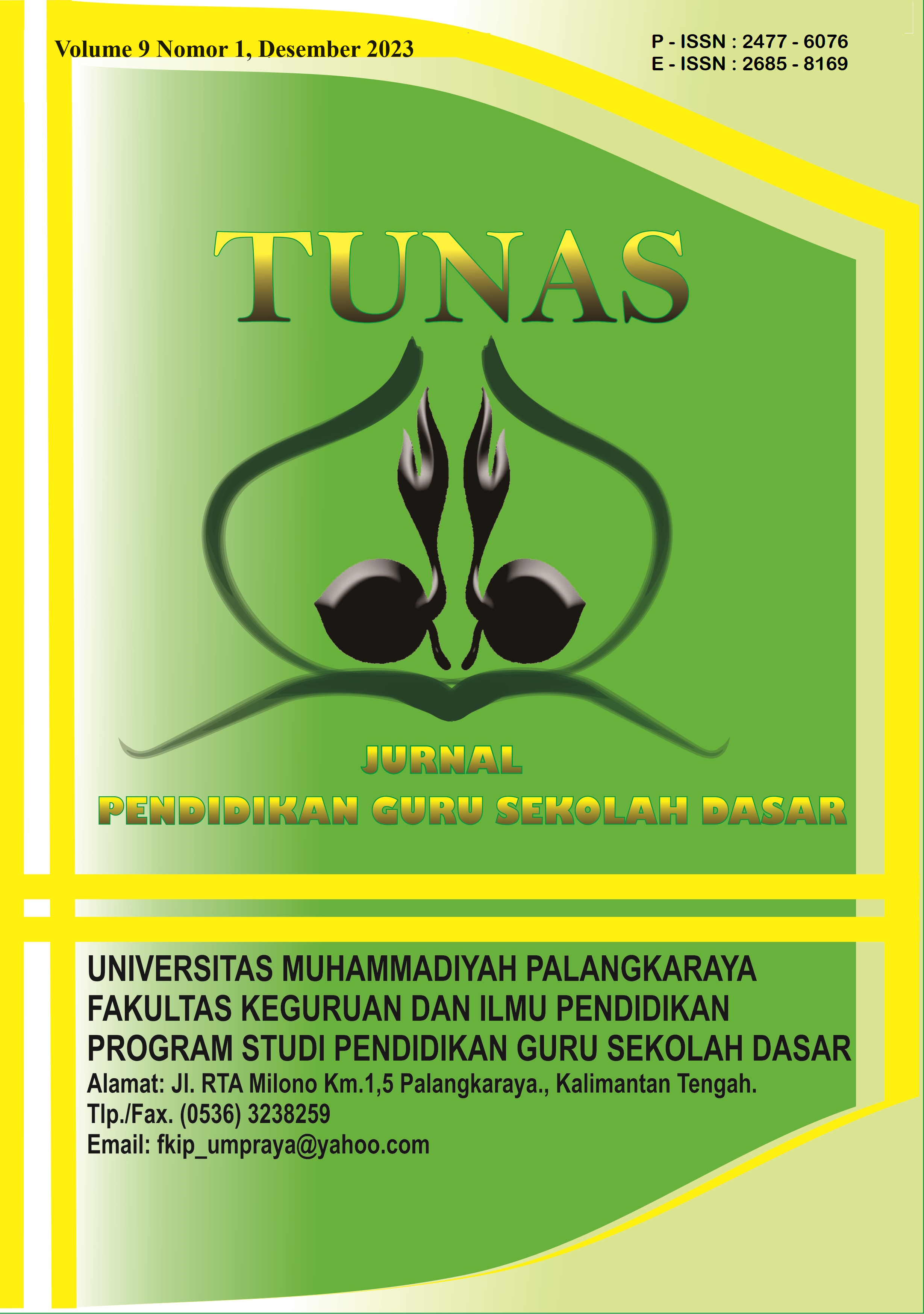Bhinneka Tunggal Ika in the Frame of Huma Betang's Philosophy
Main Article Content
Abstract
Background: Indonesia is rich in diversity, which is caused by the spread of the population across many islands, so it has many differences in religion, ethnicity, race, and culture. The large number of differences will be vulnerable to division and intimidation. Aim: This research aims to integrate the values of the Huma Betang philosophy which is also embodied in the Bhinneka Tunggal Ika frame. This research uses a qualitative descriptive and literature study approach where researchers collect data from various literature sources and journals. Results and Dıscussion: The results of the research show that the philosophy of Huma Betang has the same meaning as the five precepts that Huma Betang has meaning 1) Belief in the Almighty God or Religious Values (Hatala) Dayak people believe in the existence of God; 2) Just and Civilized Humanity, the Value of Justice and Belom Bahadat which has the meaning of life must be fair to all God's people and have good manners; 3) Indonesian Unity or called Handep Hapakat & Isen Mulang, namely the spirit of cooperation and the spirit of never giving up; 4) Democracy led by the wisdom of decisions in representative deliberations, Hapakat Basara & Hupungkal Lingu Nalatai Hapangajan Karendem Malempang means uniting in resolving a problem by consensus so that everything can reach a common agreement; 5) Social Justice for all Indonesian People, also called Belum penyang hinje simpei or living in harmony and peace for the sake of shared prosperity. Conclusion: Huma Betang's philosophy has values that are relevant to Bhinneka Tunggal Ika, which is contained in the motto and ideological foundation of the Indonesian state. In the Huma Betang philosophy, it has the same meaning as the five precepts contained in Pancasila.
Downloads
Article Details

This work is licensed under a Creative Commons Attribution-ShareAlike 4.0 International License.
Authors who publish with this journal agree to the following terms:
- Any article on the copyright is retained by the author(s).
- The author grants the journal, right of first publication with the work simultaneously licensed under a Creative Commons Attribution License that allows others to share work with an acknowledgment of the work authors and initial publications in this journal.
- Authors are able to enter into separate, additional contractual arrangements for the non-exclusive distribution of published articles of work (eg, post-institutional repository) or publish it in a book, with acknowledgment of its initial publication in this journal.
- Authors are permitted and encouraged to post their work online (e.g., in institutional repositories or on their websites) prior to and during the submission process, as can lead to productive exchanges, as well as earlier and greater citation of published work.
- The article and any associated published material is distributed under the Creative Commons Attribution-ShareAlike 4.0 International License
References
Herman, H., Munandar, H., Annisa, A., & Apriani, T. (2022). Huma Betang Philosophy Based on Social Studies Learning Through E-Book Application. The Innovation of Social Studies Journal, 4(1), 34-45.
Handoyo, Eko dan Tijan. (2020). Model Pendidikan Karakter Berbasis Konservasi: Pengalaman Universitas Negri Semarang, Semarang, Universitas Negri Semarang dan Widya Karya
Herman, H. Pembelajaran Nilai-Nilai Pancasila Dalam Mata Pelajaran Pendidikan Kewarganegaraan (Pkn) Di Kelas Viii Smp Pancasila Palangka Raya. Jurnal Socius, 6(1).
Herman, H., Rusmaniah, R., Munandar, H., & Rozikin, A. Z. (2023). Utilization of the Surrounding Environment as a Source of Learning Forum for Social Sciences. The Innovation of Social Studies Journal, 5(1), 18-24.
Kaelan. (2014). Pendidikan Pancasila. Pradigma.
Kaelan. (2022). Filsafat Pancasila Pandangan Hidup Bangsa Indonesia. Paradigma.
Lestari, Gina. (2015). Bhinnekha Tunggal Ika: Khasanah Multikultural Indonesia Di Tengah Kehidupan Sara. Jurnal Pendidikan Pancasila Dan Kewarganegaraan, 28(1), 31-37
Misbahuddin dan Iqbal Hasan. (2017). Analisis Data Penelitian Dengan Statistik. Bumi Aksara.
Nurkhaliza, G. N., Noor, A. F., & YG, O. W. (2023). Analisis Pendidikan Karakter Peserta Didik Pada Pembelajaran Pendidikan Kewarganegaraan (PKn) di SDN Bumi Agung Lamandau: Analysis of Student Character Education in Citizenship Education (PKn) Learning at SDN Bumi Agung Lamandau. Pedagogik: Jurnal Pendidikan, 18(2), 217-223.
Riwut. Tjilik. (2007). Kalimantan membangun alam dan kebudayaan, Yogyakarta: NR. Publishing
Sukmadinata, Nana Syaodih. (2017). Metode Penelitian Pendidikan, Cet.12 . Bandung: Remaja Rosdakarya
Sutan, S. Z. (2016). Aktualisasi Nilai-nilai pancasila sebagai Dasar Falsafah Negara dan Implementasinya dalam Pembangunan Karakter Bangsa. Jurnal Pendidikan Ilmu Sosial. 26 (2).
Zed, Mestika. (2018). Metode Penelitian Kepustakaan. Yayasan Obor Indonesia.
